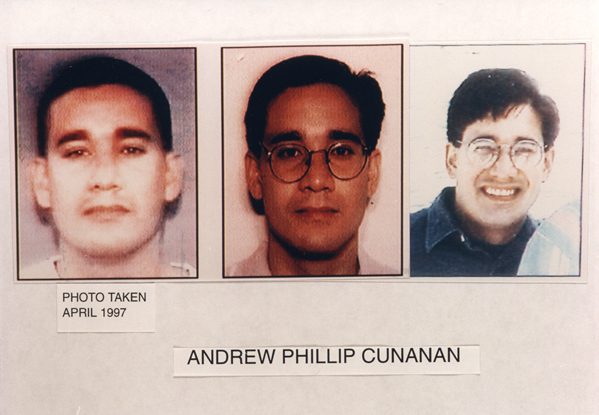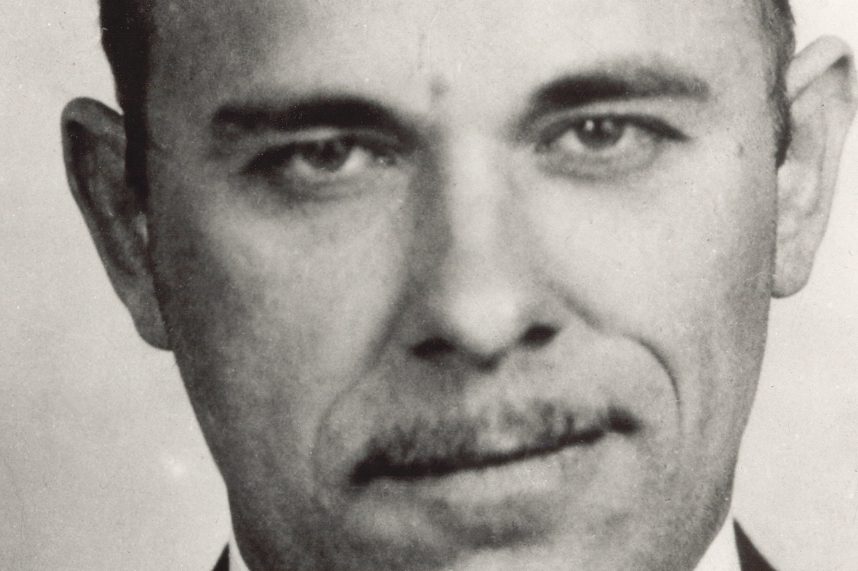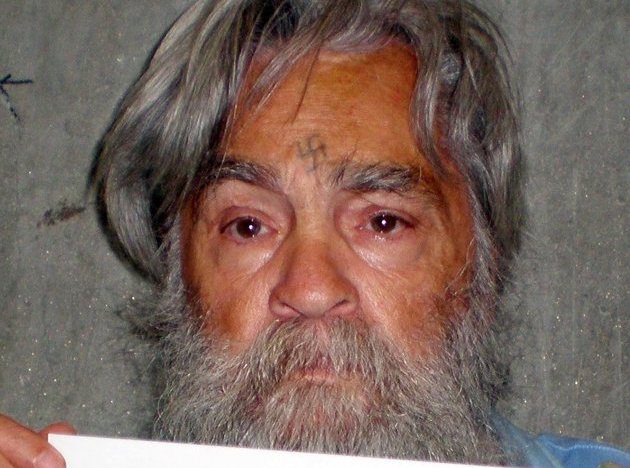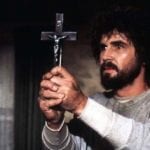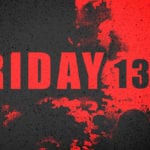We have brought you such tidbits before, and now we have some more. SEE ALSO: 10 Videos Of Violence And Insanity
10 A Close Call For Debbie Harry
Debbie Harry, lead singer of new wave band Blondie, recently revealed that she met with FBI agents over two decades ago because they believed she was a potential target of notorious spree killer Andrew Cunanan. Back in 1997, Cunanan went on a three-month terror where he killed five people, among them Gianni Versace. But the fashion designer might not have been the only celebrity on Cunanan’s hitlist. According to Harry, the killer had a phone book with a bunch of names on it and hers appeared right beneath that of Versace. That discovery is what prompted a visit from the FBI. Debbie Harry had actually met Cunanan in a New York nightclub prior to his killing spree. The two had mutual acquaintances and she described him as “well-spoken and nice looking.” Strangely, this is not Harry’s only close encounter with a deranged murderer. She also claims that she almost took a car ride from Ted Bundy during the 70s.
9 Britain’s Mindhunter No More
Earlier this year, one of the most prolific true crime authors in Britain had his latest book pulled from sale after it was revealed that he fabricated his backstory as an “experienced criminal profiler” who interacted with some of the most notorious killers of the last century. Paul Harrison has written over 30 books on crime and regularly gives interviews and talks where he recalls his experiences coming face to face with murderers such as Ted Bundy, John Wayne Gacy, and the “Yorkshire Ripper” Peter Sutcliffe. He claims to have worked as a police officer in Britain for three decades, starting as a dog handler and working his way up to profiler. He also says he worked in Quantico in 1982 alongside the FBI’s Behavioral Science Unit, time during which he interviewed serial killers across the pond. Some of the unique experiences Harrison has claimed during talks include receiving clown paintings from Gacy, having Sutcliffe admit that he was scared of Harrison, and being there with mobster Reggie Kray during the final days of his life. These earned him the nickname “Britain’s Mindhunter.” However, it has been revealed recently that none of these events likely happened. Seven former FBI agents who worked at Quantico in 1982 denied knowing Harrison or that he had access to Bundy and Gacy. Former hitman Fred Foreman derided the idea that Reggie Kray would have “entertained police” on his deathbed. Even the “Yorkshire Ripper” wrote a letter calling Harrison a “charlatan” and “conman” who never visited him. Northamptonshire police did mention that Harrison worked as an officer in Kettering until 1999, but did not go into details regarding his duties.
8 Dig Up Dillinger
The body of John Dillinger is currently at the heart of a dispute between his relatives and officials from Crown Hill Cemetery where the notorious outlaw is buried. Dillinger’s family members want to exhume his body and conduct DNA tests to prove a hypothesis that the FBI killed the wrong man 85 years ago. As one of the most renowned criminals of the Public Enemy era, John Dillinger met his end in 1934 in a shootout with FBI agents. But his nephew, Michael Thompson, is among the people who believe that a different man was buried in his spot, citing evidence such as different eye color and fingerprints. This new chapter in Dillinger’s story started in July when Thompson was granted an exhumation order with September 16 as the deadline. He even had the History Channel onboard who wanted to film the event for a documentary. However, that plan fell to the wayside due to interference by officials from the Crown Hill Cemetery who wanted to “ensure the safety and integrity” of their facility. They successfully blocked the exhumation and the deadline had passed. Meanwhile, the History Channel dropped out of the proceedings, but Thompson carried on and took the cemetery to court. He has now received a new permit which allows him to dig up the body by December 31. Cemetery representatives will appeal the decision, so it remains to be seen if the man in John Dillinger’s grave will actually be exhumed or not.
7 Is Bundy’s House Haunted?
Back in September 2016, a man named David Truong purchased a 130-square-meter (1,400 sq ft) house in Tacoma, Washington, with the intention of renovating it and selling it for a profit. It was a little blue house built in 1946, but Truong had no knowledge of its history. Neither did his contractor who soon started reporting a lot of weird things that led to fears of the building being haunted. Then, a bit of research revealed that the house was the childhood home of Ted Bundy. The first time he stepped foot in the house, the contractor, Casey Clopton, brought his 11-year-old daughter along who felt anxious, started crying and asked that they leave immediately. As Clopton’s crew got started on renovations, they began experiencing odd events which, at first, they dismissed as pranks. They found the words “Help me” and “Leave” written around the house. They found all the drawers and doors open in the morning despite closing them the previous night. They had heavy furniture fall over with nobody around it even though it had been secured in place. They had phones and other electronics die even though they were charged. Eventually, Clopton started asking around and found out about the home’s notorious resident. Even though he described himself as a skeptic, the contractor brought in two pastors to bless the house and even had his workers write Bible verses on the walls before they were repainted. The house was sold in 2018, although it is unclear if the new owners are aware of its history.
6 Story Time With Ed Kemper
People who have purchased audiobooks for the blind in the last 40 years or so might have unknowingly been listening to serial killer Ed Kemper read them their favorite stories. The popularity of the show Mindhunter brought renewed interest in the “Co-Ed Killer” Edmund Kemper, a man apprehended in 1973 and convicted of ten murders. This extra attention led to some digging into his past which uncovered an article by the Los Angeles Times from 1987. This article presents a blind couple who traveled to the California Medical Facility State Prison to thank, in person, the prisoners participating in a project to record audiobooks for the visually impaired. There, they met the inmate in charge of the program—Edmund E. Kemper III. Back in 1987, Kemper had already been doing this for a decade and had spent over 5,000 hours in the recording booth, reading hundreds of books. It is unclear how many he has recorded by now, although people have only been able to track down about 17 of them, including Flowers in the Attic, the fourth Dune book, and a novelization of the original Star Wars trilogy. In the video above you can Ed reading an excerpt from Flowers in the Attic.
5 The Head In David Attenborough’s Garden
Some infamous murders can still surprise us with unexpected twists years, even decades after taking place. The murder of Julia Martha Thomas, for instance, occurred in 1879, but the location of the victim’s skull remained a mystery. That is until it was finally located in 2011…in the garden of Sir David Attenborough. Almost 140 years ago, Thomas was killed by her maid, Kate Webster. To get rid of the body, Webster dismembered it, boiled the flesh of the bones and threw most of the remains in the River Thames. The severed head, however, she decided to discard in a more secluded area. The crime shocked Victorian Britain. It became known as the “Richmond Murder”, but also the “Barnes Mystery” due to the unknown location of the head. Fast-forward to 2010 and the skull which once belonged to Martha Thomas was found during excavation work being done on the property of beloved naturalist Sir David Attenborough. In Webster’s time, the area where she dumped the head would have been the stables of the “Hole in the Wall” Pub. It wasn’t possible to perform a DNA test since Thomas did not have any descendants. However, the characteristics of the skull were consistent with those of the murder victim. It was the right age and gender, it had the right fracture marks, and collagen levels suggested it had been boiled. Moreover, the pub was located 100 yards away from where Thomas was murdered and the head was buried on top of tiles from the Victorian era, helping to pinpoint the correct time period. Consequently, the coroner identified the skull as that of Martha Thomas.
4 Summer Of Sam Ends With Boozed-Up Shindig
It has been over four decades since police caught the Son of Sam, one of the most notorious murderers in U.S. history. Even so, new details surrounding his year-long killing spree that terrorized New York are still emerging. For example, after Berkowitz was brought in, the police headquarters at One Police Plaza turned into a giant drunken bash after the mayor placed an unofficial “amnesty” on the no-liquor rule. It was August 1977 and the Son of Sam was sitting handcuffed in the Chief of Detectives’ Office, smiling from ear to ear. Outside the office, all the cops and reporters who worked the case were celebrating with a few drinks. Then-Captain Joe Borrelli walked up to Mayor Abe Beame and told him half-jokingly that alcohol was not allowed inside police facilities. The mayor nodded back and said that he will waive the rule for that night, giving him $200 to “buy the boys a drink.” As it turned out, no money was necessary. Unbeknownst to him, NYPD spokesman Frank McLaughlin had a bet going on with bar owner Roy Bernard. The latter promised that, if police caught the Son of Sam, he would throw them a party. The night of the bust, Bernard kept his end of the bargain, and brought over cases of beer, scotch, vodka, and gin and set up an impromptu bar in a conference room.
3 The Two Orioles
Sports memorabilia are among the most popular items sought out by collectors. Murder collectibles, also known as murderabilia, have their own devoted fans, but rarely do the two sections intersect. However, there is one unique object currently for sale for $10,000—an oriole painting by serial killer John Wayne Gacy which has been autographed by Baseball Hall of Famer Cal Ripken Jr. The painting was done by the killer clown while on death row before being executed in 1994. Gacy was a prolific painter during this time and his artworks are quite popular with murderabilia collectors. Brian Platt, the businessman from Pennsylvania who is selling this unique canvass, owns another seven paintings of his. This one stands out, though, due to the prominent signature of Cal Ripken Jr. Nicknamed the “Iron Man”, Ripken played his entire career with the Baltimore Orioles and became a 19-time All-Star. Gacy and Ripken never met. Instead, the original owner of the artwork allegedly tracked down the baseball player and had him sign the painting. When Platt bought the canvass at auction, he wasn’t aware of the Ripken autograph until his lawyer pointed it out to him. A spokesman for Ripken says that the former Oriole does not remember signing the painting, but cannot say for certain whether the signature is his or not. Given Ripken’s reputation as a “serial signer”, it is probable that he did autograph the artwork, but it is highly unlikely he had any idea what it was.
2 Going Out With A Bang
German serial killer Egidius Schiffer met a strange end last year when he killed himself in his prison cell, most likely accidentally, by tying an electric cable around his penis and nipples and giving himself a fatal shock. Schiffer’s name is unlikely to ring a bell with many people. Dubbed the “Aachen Strangler”, he was imprisoned in 2008 for five murders he committed in the 1980s. One morning in July 2018, guards at Bochum Prison where Schiffer was serving a life sentence arrived to find the strangler dead after seemingly killing himself in the middle of a sex act. Schiffer had ripped out the cable from a lamp, tied it around his nipples and genitals and stuck the other end in a socket. The electric shock passed through his body and caused heart failure. The death is considered accidental. Police said there were no signs of foul play while Schiffer’s lawyer claimed his client was not suicidal.
1 Who Gets Manson’s Stuff?
Charles Manson died in 2017. Since then, there has been a drawn-out battle over who gets his estate and his body. At least five people argued that they are the rightful owners: some of them Manson’s alleged family and others pen pals he made in prison. The case proved tricky for officials because, in accordance with California law, they had trouble deciding which court had jurisdiction over Manson’s estate due to his lack of a domicile. Therefore, Charles Manson’s body was put on ice until the courts could settle the matter. Eventually, the fight came down between two men. One is Jason Freeman, a man claiming to be Manson’s grandson. The other is Michael Channels, a pen pal who exchanged letters with Manson for 20 years. After months of legal battles, the county court commissioner of Bakersfield, California, ruled that Freeman would get Manson’s remains as the “surviving competent adult next of kin.” That being said, the matter of Manson’s estate is still being debated between the two. Both sides have arguments working for and against them. Freeman should have the rights as next of kin, but Channels has challenged this assertion. According to him, Freeman’s father won his paternity suit by default because Manson didn’t appear in court. Meanwhile, Channels claims to have a will where Manson bequeaths his estate to him. However, it is handwritten and some sections have been deemed illegible. Channels filed a motion forcing Freeman to take a DNA test to prove he is Manson’s grandson. A California judge approved it this September so the matter might be resolved soon.
